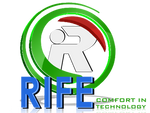RFID Labels in Hospitals Solutions
Benefits of Using Flag RFID Labels in Hospitals
Flag RFID labels are specialized tags designed for items where standard RFID tags are impractical due to size, shape, or material composition. These labels, often folded or extended outward like a “flag,” ensure optimal readability for tracking items in challenging environments, such as hospitals. The adoption of flag RFID labels in healthcare facilities offers several critical benefits:
1. Enhanced Tracking of Small or Complex Items
Flag RFID labels are ideal for small or irregularly shaped medical items, such as surgical instruments, tubing, and handheld diagnostic tools. Their unique design allows the RFID antenna to remain exposed, ensuring strong signal transmission even when attached to metallic or non-metallic surfaces. This is particularly useful for tracking essential tools used in operating rooms or sterilization units.
2. Improved Inventory Accuracy
Hospitals often manage thousands of inventory items, ranging from consumables to high-value equipment. Flag RFID labels ensure precise tracking of each item, reducing errors caused by manual inventory checks. With real-time updates provided by RFID readers, healthcare providers can maintain accurate records of stock levels, locations, and usage.
3. Sterilization Resistance
Many medical items undergo sterilization processes, including autoclaving, chemical cleaning, or UV exposure. Flag RFID labels are often designed with durable materials that withstand harsh sterilization procedures, making them ideal for reusable instruments and equipment. This ensures continued functionality and accurate tracking post-sterilization.
4. Easy Application on Challenging Surfaces
The flexibility of flag RFID labels allows them to be applied to curved, textured, or irregular surfaces, such as surgical instruments, IV lines, or monitoring equipment. This versatility makes them an invaluable tool for managing diverse hospital inventory.
5. Reduced Loss and Misplacement
In busy hospital environments, items are frequently moved between departments. Flag RFID labels help prevent loss or misplacement by providing instant location data. For instance, staff can quickly locate a specific surgical tool within the sterilization area or track infusion pumps in a large facility, improving operational efficiency.
6. Streamlined Workflow and Efficiency
By automating asset tracking and inventory management, flag RFID labels reduce the time healthcare workers spend searching for items or performing manual counts. This allows staff to focus more on patient care, enhancing overall productivity in hospital operations.
7. Enhanced Security and Accountability
Flag RFID labels can be used to track high-value or controlled items, such as narcotics, implantable devices, or diagnostic equipment. The system logs every movement and interaction with these items, providing a detailed audit trail that improves accountability and reduces the risk of theft or unauthorized access.
8. Cost Savings
Hospitals can save significantly by reducing waste, optimizing inventory levels, and preventing the loss of valuable equipment. Flag RFID labels enable precise tracking, ensuring that items are used efficiently and replenished only when necessary.
9. Compliance and Reporting
Flag RFID labels support hospitals in meeting regulatory requirements by maintaining detailed, accurate records of inventory and asset usage. This simplifies audits and ensures compliance with healthcare standards.
10. Scalability and Integration
Flag RFID labels integrate seamlessly with hospital inventory management systems, allowing facilities to scale their tracking operations as needed. From individual departments to entire multi-location networks, these labels adapt to varying hospital needs.
By incorporating flag RFID labels into their operations, hospitals can enhance efficiency, reduce costs, and improve patient care outcomes, making them a vital asset in modern healthcare environments.
